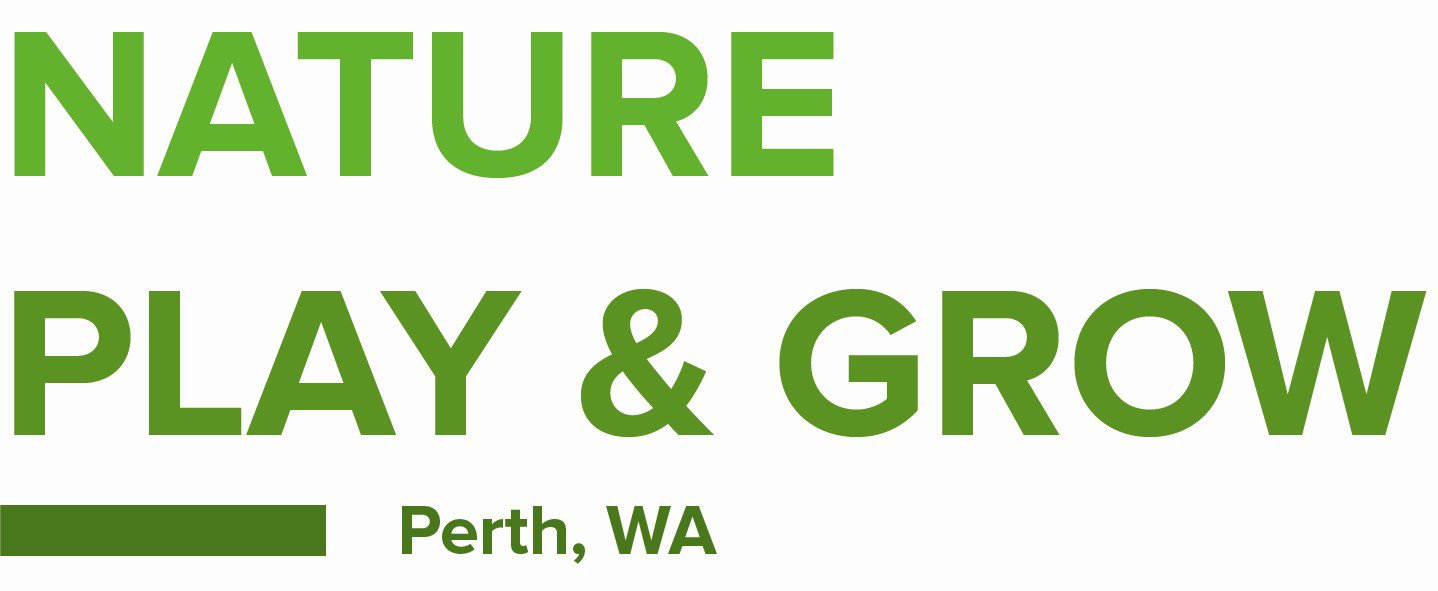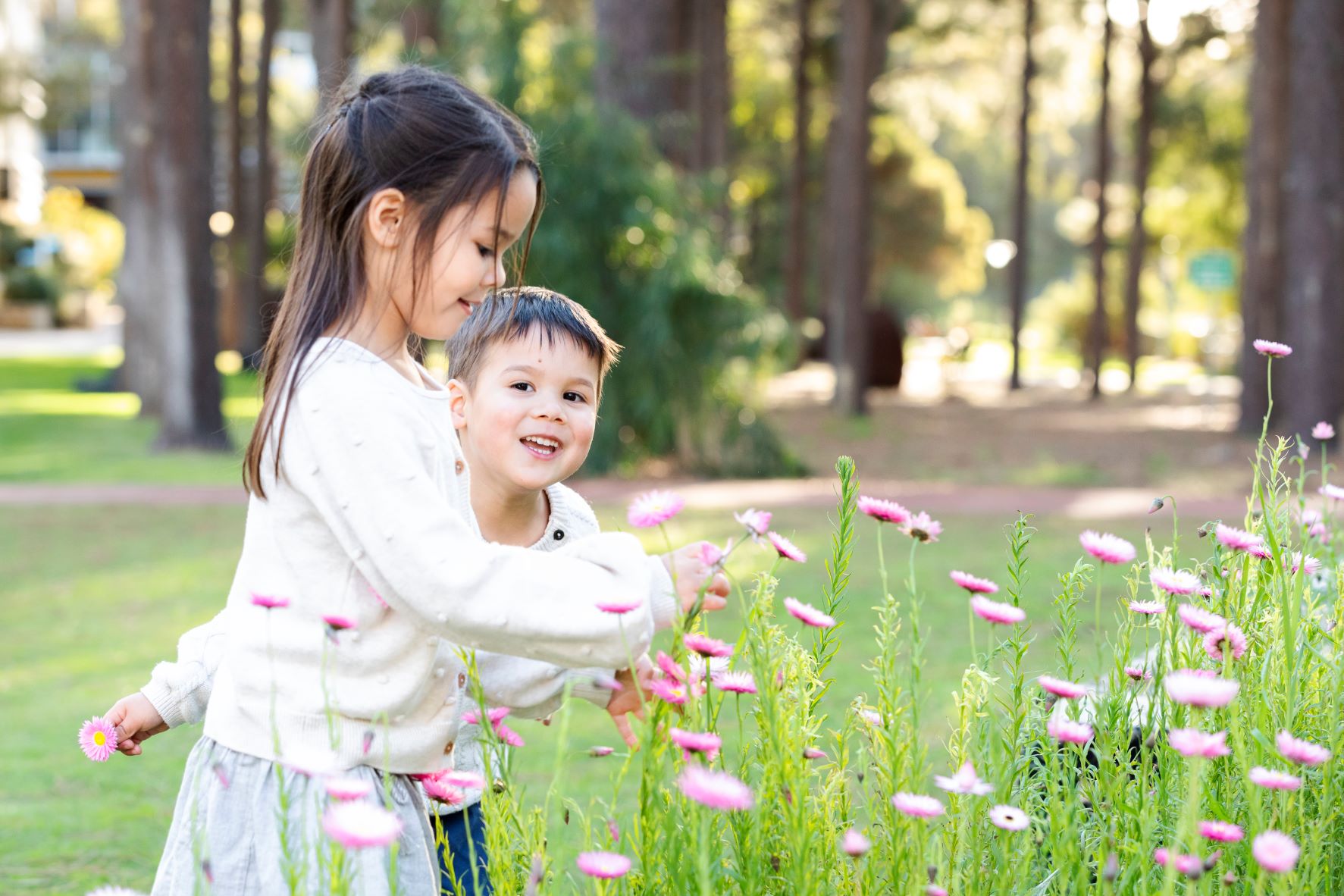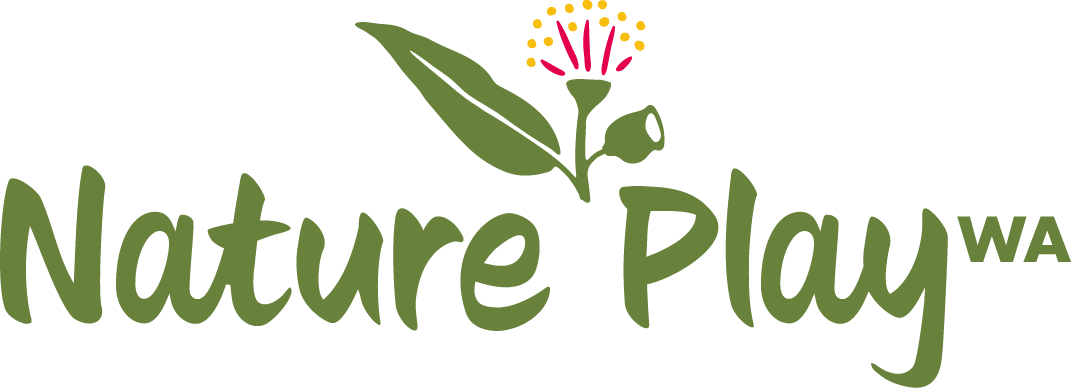
There is strong evidence that time in nature is associated with better child health including physical activity, eating behaviours, sleep quality and all aspects of physical and mental well-being.
The Nature Play & Grow study aims to address the concerning trend for unhealthy behaviours in young children, which can contribute to long-term lifestyle habits.
There has been a significant shift from active, outdoor nature-based activities to more passive screen-based indoor activities — with an associated rise in psychological disorders, chronic disease, and a disconnect from the natural environment.
What is Nature Play & Grow?
The Nature Play & Grow early intervention pilot program is now complete, though we hope to offer the full program in the future.
Watch the project's feature on Channel 7 News and read the evaluation report here
The pilot study aimed to promote connectedness to nature, healthy eating, physical activity, and emotional well-being in young children.
What does participation involve?
The eight-week program, completed in August 2022, consisted of two main components:
- Parents were asked to complete one 20-minute online module per week, delivered via the Thinkific platform.
These modules were based around a weekly theme such as outdoor play, healthy eating, physical activity and child development, and will feature information presented by experts in child health and development. The short modules contained podcasts and videos providing resources and information to increase knowledge and motivation. See outline of the program below.
- Parents were asked to attend a weekly one-hour group session, followed by morning tea, held in different local parks in the City of Wanneroo and the City of Joondalup. Each group session will be facilitated by a member of the project team and will include the same ten families in each session. The group will enjoy outdoor experiences based on the weekly theme. Families will be asked to bring a picnic rug and snacks for their child and will occasionally be asked to bring along items from home such as small craft items, a bike or scooter and dress ups.
Participants were also asked to complete an online questionnaire prior to the beginning of the program and at the end of the eight-week program. Additional follow-ups will be conducted at six and 12 months following the completion of the program.
There are no costs to the participant for involvement in the project.
What are the possible benefits of participating?
By participating in this project, we are expecting to see an increase in nature-connectedness for both parent and child which may result in positive changes in the key areas of nutrition, physical activity, sedentary behaviour, emotional wellbeing, and behavioural development.
A collaboration
This pilot project is a sub-project of ORIGINS and is being conducted in collaboration with the The Kids Research Institute Australia and Nature Play WA.
Further Information
Download the Nature Play & Grow Participant Information Brochure here
phone: 08 6319 1405
email: originsnatureplay@telethonkids.org.au
Nature Play & Grow’s eight-week program
|
Date |
Park |
Topic |
Online modules |
Outdoor group experiences |
Guest speakers |
|
Week 1 |
Central Park |
Every child can thrive by five |
Benefits of outdoor nature-based activities Physical growth patterns and the importance of being active and Guidelines for Healthy Growth and Development (24 hr movement guidelines) Sobel’s play themes (Adventure; Maps and pathways; Small worlds) |
Establish community and routines Create a boat Adventure walk |
TED Talk Molly Wright
|
|
Week 2 |
Neil Hawkins Park |
Importance of children being active for overall health and wellbeing |
Zamani’s research about what children like to do in outdoor play Movement through play and in nature Physical development and developmental milestones Introduce safety sense and hazard vs risk |
Blow bubbles Balls and running games Sensory Walk to the boardwalk |
Assoc Prof Hayley Christian: PLAY Spaces and Environment for Children’s Physical Activity, Health and Development program, researcher The Kids Research Institute Australia |
|
Week 3 |
Picnic Cove Park |
Importance of healthy eating and building immunity and good gut health by playing outside |
Benefits of open-ended sensory and messy play opportunities – e.g., sand Gradual release of responsibility Norodahl & Einarsdottir’s research about what children like in outdoor play Risk assessment and safety sense |
Mud play Water play and Nature Obstacle course Rainbow fruit kebabs |
Prof Desiree Silva: co-director of The ORIGINS Project. Professor of paediatrics University of Western Australia and Joondalup Health Campus |
|
Week 4 |
Sir James McCusker Park |
Developing a growth mindset and other positive dispositions for learning |
Growth vs Fixed mindset Sobel’s play themes (Hunting and gathering; Special places; Fantasy and imagination) Aminpour’s research about landscape variety for play opportunities |
Choose your own adventure walk and exploration Wand-making Cubbies and dramatic play |
Dr Fiona Boylan: Lecturer in Early Childhood Studies Edith Cowan University |
|
Week 5 |
Covent Park |
Healthy eating and developing an adventurous attitude towards play and movement |
Movement challenges Sandseter’s research about the six categories of risky play Risk assessment and Safety sense |
Adventure play on playground Movement challenges Cheese, guacamole and salad pita pockets or sandwiches |
Dr Amelia Harray: Accredited Practising Dietician and Nutritionist and Senior Research Fellow Children’s Diabetes Centre, The Kids Research Institute Australia |
|
Week 6 |
Central Park 2 |
Outdoor environments as settings for imaginative play and managing self |
Sobel’s play themes (Animal Allies) Imaginative play in nature Positive dispositions for learning Executive function – self-control, mental flexibility, working memory |
Potion Making Dramatise a version of Going on a Bear Hunt Teddybear Picnic Singalong |
Griffin Longley: CEO of Nature Play WA |
|
Week 7 |
Picnic Cove Park 2 |
Play as a vehicle for children to develop their own strengths, interests and social skills |
Parten’s Stages of play - solitary, onlooker, parallel, associative, and cooperative play Play Schema - transporting trajectory and rotating Gardner’s Theory of Multiple Intelligences - nature, body, picture, music, word, logic, people, self |
Bikes, scooters, and balance bikes Sandcastles and sand play Hot chocolate and damper |
Griffin Longley: CEO of Nature Play WA |
|
Week 8 |
Rotary Park Scenic Drive |
The benefits of outdoor play for strengthening health and wellbeing. What sort of childhood do you want for your child? |
Being three years old UN Rights of the Child (unstructured child-led play) What to say instead of “Be careful!” |
Group singing, dancing, games Explore playground Sensory play and make a nest with herb salt dough |
Griffin Longley: CEO of Nature Play WA |


